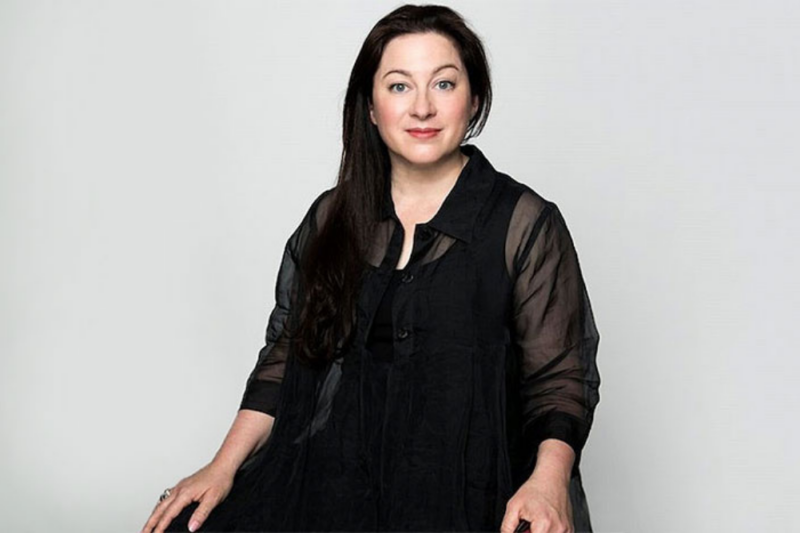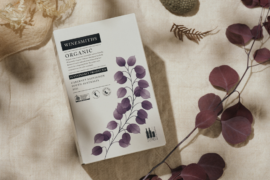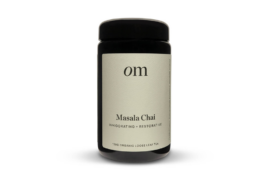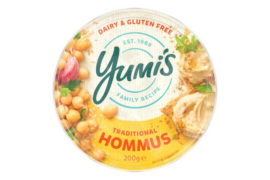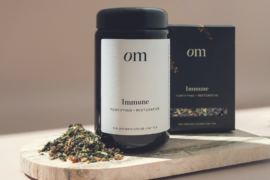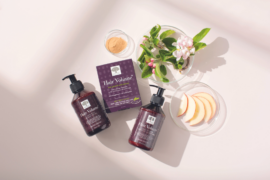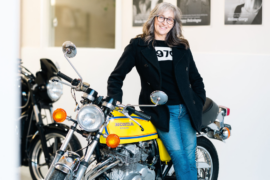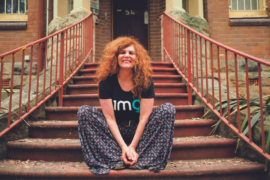Gill Hicks: from surviving the London terrorist attack to world peace activist
In 2005, Gill Hicks’ life was changed forever when she lost both her legs in the London terrorist attack. In the 16 years since, the speaker, activist, author and curator has dedicated her life to campaigning for world peace.
When Gill Hicks lost both her legs and nearly her life in the July 7, 2005, terrorist attack in the London Underground, it brought her face to face with the horrors of terrorism. But it also showed her the depths of human compassion, love and empathy.
Hicks has risen to become a voice of hope and optimism, and a passionate advocate for peace. Her story and journey have captured the hearts and minds of many, and her work through her charity M.A.D for Peace (Make A Difference for Peace) has won her numerous awards, including an MBE and OAM.
Hicks is the embodiment of warmth, compassion, intelligence and optimism. She has a real thirst for life and a desire to push her limits; to commemorate the 10th anniversary of the London bombing, Hicks abseiled Adelaide’s tallest building.
Our shared humanity
To be confronted by a sudden disability and the grief that comes with that is no easy thing. To then leave your old life behind in search of something more meaningful amounts to a seismic shift. But that’s exactly what Hicks did, leaving behind a successful creative career in London to dedicate her life to promoting peace and fighting extremism.
“I didn’t have to make a choice, it was like I had arrived in it,” she says. “Ultimately everything started from a place of feeling absolutely euphoric I was alive … beyond appreciative and grateful — euphoric! It made me think deeply about the gift of life and I felt an incredible sense of love.
“I became aware of the ‘rubbish of life’, the trappings of the banality of everyday that we often don’t recognise as banality until we’re on the other side of this Perspex wall. It was like the world changed. But I suddenly realised the world hadn’t changed, I had. The question became: ‘How do I tell an unchanged world what is possible?’ That began the quest!”
Amid the horror scenes in the London underground that July day, Hicks was confronted with the worst, but also the best of humanity. “People were willing to risk their lives to enter a situation that was completely horrific and unknown,” she says. “They put themselves at risk trying to save as many lives as they could. My life was seen as far more important to save than their own. That love of humanity, connection, empathy and duty is extraordinary! I experienced the ‘us’ that I know us to be.”
The “us” Hicks experienced was present among those in the train carriage after the bomb went off. “There’s this etiquette in London when you’re commuting where you don’t talk to anyone and you don’t look at anyone. We’ve all signed up to this unwritten rule and it’s become a way of life,” she says. “In a horrific situation, that conditioning evaporated in a second. While we waited for rescue, we all helped each other.”
After the bomb blast, the survivors held each other’s hands and called out their names in a roll call of life, “I’m Gill. I’m here. I’m alive,” Hicks recalls saying. “We kept each other alive, buoyant, connected and together.” Tragically, in the hour Gill waited to be rescued, the others in her carriage passed away. Each year, Gill honours their lives by placing a flower in the ocean and lighting a candle.
One of Hicks’ guiding principles is that there is more that unites us than divides us. When you strip away the social conditioning, she explains, you are better able to connect with people, no matter your differences. “I don’t understand how we can lose a sense of seeing ourselves in others. We need to connect with others on a human level and to feel a deep sense of empathy for each other.”
Disasters often bring people together, but Hicks wants to see this connection and empathy without adversity, loss and trauma. While cultural and systemic change is often hard and slow, Hicks believes peace begins with the individual; with how you live, how you think and the small actions you take in your day-to-day life.
The most important shift you can make is realising how precious and fleeting your life is, she says. “We live with the absolute knowledge that we will die. This is the most unifying thing of all. The price of life is death; that’s the only thing that should motivate us and should mean we live each day like we are on the edge of our seat! That is a big task … we have a lot to do!”
According to Hicks, it all starts with ourselves. How you think about yourself informs how you treat others, she says. We must extend empathy towards ourselves through self-compassion: “The relationship we have with ourselves is the most important relationship we will ever have.” It’s a lesson she is teaching her eight-year-old daughter Amelie. “It starts with ‘I am my greatest love.’ Once that relationship has formed, everything becomes clear and it helps you make good choices and not harbour negativity.”
The power of the mind
Mindset has always been an important part of how Hicks has chosen to respond to her life and how she has been able to find opportunity in adversity. “I see life as an unfolding of situations and it’s how we interpret those situations that matters. I don’t see things as fate, but more as a catalyst of change,” she says.
It’s hardly a new philosophy, but Hicks is a big believer in the power of our thoughts. “The impact your thoughts can have on your life is profound,” she says. “A single thought can influence our actions or inactions; a single negative thought can stop us from achieving. Being conscious where our thoughts are leading us and why they are leading us there is so important. The freedom in that is extraordinary; even if we are constrained physically, it doesn’t stop the mind!”
While it’s tempting to label life events as “good” or “bad”, Hicks prefers to focus on what she terms gathering experiences. “Whatever we go through, good or bad (and our perception of good and bad), we are creating an ‘experience CV’. It means whatever you go through in life you can draw upon that experience.
“At the end of our life we can say: ‘I’ve had a great CV, I’ve built a lot of wisdom.’ I think the meaning of life is to find your meaning in life; it’s a great riddle of sorts.”
Creative healing
Hicks has added to her own experience CV and pushed her limits over the last few years, working on a range of creative projects that have brought her back to her creative roots. “I’d left my creativity in a basket to the side that I called ‘Life number one’. I felt like my purpose was to concentrate on countering extremist narrative and working in the hard edge of peace building.”
That changed when she was asked to do a painting to raise money for a charity in 2014. Hicks admits to feeling nervous stepping back into the art space, but while she was painting, she experienced an incredible feeling of becoming one with the paint and canvas — the unique beauty and joy of being totally in flow. “I knew in that moment I needed to go back to painting. I’d dismissed my creative life because it didn’t feel ‘on purpose’. I felt I needed to be solving extremism and I dismissed who I really was in my soul.”
Since becoming a double amputee, Hicks has become fascinated by the idea of footprints. As she began painting again, footprints started to feature strongly in her work. “These little feet would create mandalas and the mandalas would be telling stories about humanity, how we are the same but slightly different, and why that’s OK. As someone who is a double amputee without feet, I thought my natural place was to talk by using footprints. To bring a levelling to us as empathetic beings. To say we all leave an impression, we all leave a footprint.”
Her deepest creative healing, however, came when she stepped onto the stage earlier this year at the Adelaide Fringe Festival. In her show Still Alive (and Kicking) Hicks took her audience on a journey of song, music and video, to share her experience of the London terrorist attack and explore what’s truly important in life.
Performing every night, 12 shows in all, with a black tutu made from an incredible amount of tulle, it was an impressive feat and her performances received rave reviews. The experience had a profound impact on Hicks, bringing a renewed sense of wholeness and joy to her life.
“It has been extraordinary,” she says. “It saved my soul! When music came into my life, I felt connected again. It was like being whole for the first time in 16 years. For someone who is not whole, who has lost both legs, to feel this enormity of presence and to feel connected again, it’s incredible. To feel fully present and fully me — that’s what the Fringe performances did for me. I realised this is what real purpose feels like.”
There is great power in expressing ideas creatively. Art often succeeds where words alone can’t. “Art is its own language,” says Hicks. “It’s a language that everyone can interpret. Art talks to the soul and informs the mind. The heart influences the mind, which means it can change opinions.”
Hicks is a passionate communicator. She founded M.A.D. for Peace, a non-profit organisation that focuses on communicating the importance of individual responsibility when it comes to ending extremism, conflict and violence in 2007. That grew to birth consultancy firm M.A.D. Minds and, most recently, Hicks has launched Music Art Discussion (still M.A.D.), which explores how creative expression can be used to promote peace and connection. Hicks has come full circle, back to her full expression as a creative and a change-maker.
This year marks 16 years since the bombing. There is no doubt the terrorist attack changed Hicks in profound ways, but in so many ways she is still the same woman she always was. She has always been defiant, with big ambitions, huge amounts of courage, a great sense of humour and a love for people. As she puts it: “I am still me, but on steroids!”
With so much still to share, Hicks won’t be wasting a minute of her precious life. She is currently working on three new creative projects: a cookbook titled Breaking the Bread that will tell the stories of survival through recipes; a children’s book series, Tricky Trickster, about a mischievous daughter with a very curious mind; and a podcast called Who Cares? in which she interviews people working in fields that make a positive difference to the world.
While Hicks might not leave a physical footprint any more, she has made an enormous impression on the world. She has shifted the conversation around peace and unity, promoting sameness over difference and empathy over hate. With her precious understanding of how fragile life is, she calls us all to live our lives to the full, to stop for a moment and ask the important questions of our lives: “How much are you giving?” “How light is your footprint?” “How deep is your impression?”
Jessica Lee is a performance and mindset coach, speaker and writer. She is passionate about helping people use brain-based strategies to achieve their goals and increase their health, happiness and creativity. She runs The Spark Effect Academy, an online performance and mindset program. Get in touch with Jessica at jessica@thesparkeffect.com.au or via thesparkeffect.com.au.
